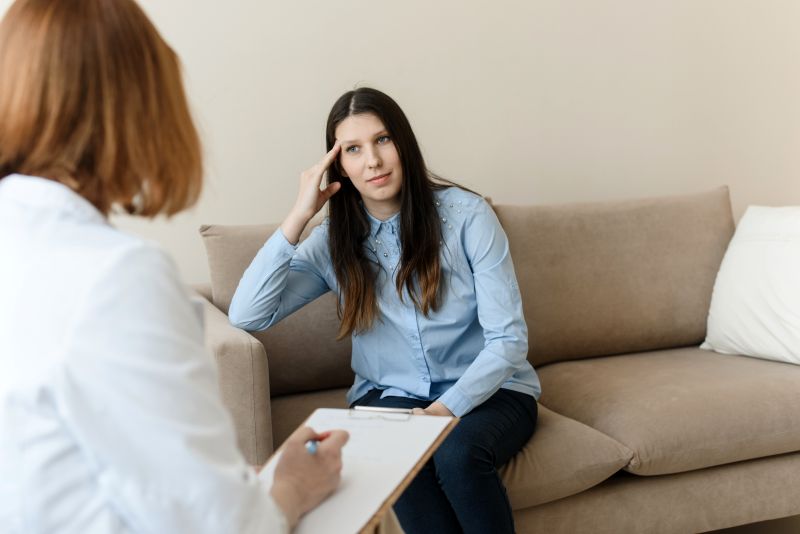Anxiety touches nearly everyone’s life at some point. Whether it’s the flutter of nerves before a big presentation or the tight knot in your stomach during a difficult conversation, these feelings are completely normal parts of being human. However, when anxiety begins to control your decisions, limit your activities, or cause significant distress, it may be time to consider professional help.
Understanding when to reach out to an anxiety specialist can be the difference between continuing to struggle alone and finding effective relief. Many people wonder if their symptoms are “serious enough” to warrant professional attention, but the truth is that seeking help is always a sign of strength, not weakness.
Understanding Anxiety: Normal vs. Problematic

Before exploring when to seek professional help, it’s essential to understand what anxiety actually is. Anxiety is your body’s natural response to stress or perceived danger. Common symptoms include excessive worry, restlessness, difficulty concentrating, muscle tension, and physical symptoms like a racing heart or sweating.
The key difference between normal anxiety and anxiety disorders lies in intensity, duration, and impact on daily life. Normal anxiety tends to be temporary and proportional to the situation at hand. It might make you feel nervous before a job interview, but it doesn’t prevent you from attending. Anxiety disorders, however, involve persistent, excessive worry that interferes with your ability to function normally.
When anxiety becomes overwhelming or lasts for extended periods, it may have crossed the line from a normal stress response into something that requires professional intervention from an anxiety specialist.
Recognizing the Signs You May Need Help from an Anxiety Specialist
Several key indicators can help you determine when professional support becomes necessary.
When Anxiety Affects Daily Life
One of the clearest indicators that you might benefit from seeing an anxiety specialist is when anxiety begins to interfere with your daily activities. This interference can manifest in various ways:
- Avoiding social situations or work responsibilities
- Difficulty making decisions due to overwhelming worry
- Problems maintaining relationships because of anxiety symptoms
- Struggling to complete routine tasks like grocery shopping or attending appointments
When anxiety starts dictating what you can and cannot do, it’s time to consider professional support. Anxiety specialists are trained to help you develop coping strategies that allow you to reclaim control over your life.
Physical Symptoms of Anxiety
Anxiety doesn’t just affect your mind—it can cause significant physical symptoms that impact your overall well-being. These physical manifestations often include:
- Rapid heartbeat or heart palpitations
- Shortness of breath or feeling like you can’t catch your breath
- Dizziness or lightheadedness
- Nausea or stomach problems
- Headaches or muscle tension
- Sleep disturbances or insomnia
If you’re experiencing persistent physical symptoms that medical tests cannot explain, anxiety might be the culprit. A specialist for anxiety disorders can help you understand the connection between your physical symptoms and emotional state, providing targeted treatment approaches.
Excessive Worry or Fear
While worry is a regular part of life, excessive worry that feels uncontrollable or disproportionate to the situation may signal an anxiety disorder. Signs of excessive worry include:
- Constantly anticipating the worst-case scenario
- Inability to stop worrying, even when you try
- Worrying about things that are unlikely to happen
- Feeling like your mind is always racing
Avoidance Behavior
Another red flag is when you start avoiding people, places, or situations because of anxiety. This avoidance behavior might seem like a solution in the short term, but it often makes anxiety worse over time. Examples include avoiding public transportation, skipping social events, or calling in sick to work because of anxiety symptoms.
Difficulty Controlling Anxiety
If you find that your usual coping mechanisms no longer work, or if you feel like anxiety is controlling you rather than the other way around, it’s time to seek professional help. A specialist for anxiety can teach you evidence-based techniques to manage your symptoms more effectively.
Types of Anxiety Disorders That May Require a Specialist

Understanding the different types of anxiety disorders can help you identify which condition might be affecting you.
Generalized Anxiety Disorder (GAD)
Generalized Anxiety Disorder involves excessive worry about various aspects of life, from work and relationships to health and finances. People with GAD often describe feeling anxious about everything and find it difficult to control their worry.
Panic Disorder
Panic Disorder is characterized by sudden, intense episodes of fear accompanied by physical symptoms like chest pain, shortness of breath, and dizziness. These panic attacks can be so frightening that people often worry about having another one, creating a cycle of anxiety about anxiety.
Social Anxiety Disorder
Social Anxiety Disorder involves intense fear of social situations where you might be judged or embarrassed. This goes beyond usual shyness and can significantly impact your ability to form relationships or advance in your career.
Phobias
Specific phobias involve intense fear of particular objects or situations, such as flying, heights, or spiders. While the fear might seem irrational, it feels genuine and can cause significant distress.
Post-Traumatic Stress Disorder (PTSD)
PTSD can develop after experiencing or witnessing a traumatic event. Symptoms include flashbacks, nightmares, and severe anxiety related to the traumatic experience.
Obsessive-Compulsive Disorder (OCD)
OCD involves unwanted, intrusive thoughts (obsessions) that lead to repetitive behaviors or mental acts (compulsions) performed to reduce anxiety.
Anxiety specialists have specific training to diagnose and treat these various conditions using evidence-based approaches tailored to each disorder.
What to Expect During Your First Session with an Anxiety Specialist
Knowing what to expect can help reduce any anxiety about starting therapy.
Initial Assessment and Diagnosis
Your first appointment will typically involve a comprehensive assessment where the specialist gathers information about your symptoms, medical history, and how anxiety affects your daily life. This assessment helps determine whether you have an anxiety disorder and, if so, which specific type.
The specialist will ask detailed questions about when your symptoms started, what triggers them, and how they impact different areas of your life. This information is crucial for developing an accurate diagnosis and effective treatment plan.

Building a Treatment Plan
Once the assessment is complete, your anxiety specialist will work with you to create a personalized treatment plan. This plan might include various therapeutic approaches, lifestyle changes, or medication recommendations if appropriate.
Treatment plans are typically collaborative, meaning you’ll have input into which approaches feel most comfortable and realistic for your situation. The specialist will explain different options and help you understand what each involves.
Explaining Therapy Methods
During your initial sessions, the specialist will explain the therapeutic methods they recommend for your specific situation. Common approaches include Cognitive Behavioral Therapy (CBT), exposure therapy, mindfulness-based interventions, or other evidence-based treatments.
Your specialist will take time to explain how these methods work and what you can expect during the treatment process. They’ll also address any concerns or questions you might have about therapy.
Taking the First Step Toward Better Mental Health
Recognizing that you need help with anxiety is often the most challenging part of the process. Suppose you’re experiencing persistent worry that interferes with your daily life, physical symptoms that seem related to stress, or find yourself avoiding important activities because of fear. In that case, these are clear signs that consulting an anxiety specialist could be beneficial.
Remember that seeking help for anxiety is a common and positive step toward better mental health. Anxiety specialists have the training and experience to help you understand your symptoms and develop effective strategies for managing them. With proper support, you can learn to reduce your anxiety symptoms and improve your overall quality of life.
Don’t wait until anxiety completely takes over your life. The sooner you reach out for professional help, the sooner you can start feeling better and regaining control over your daily experiences.